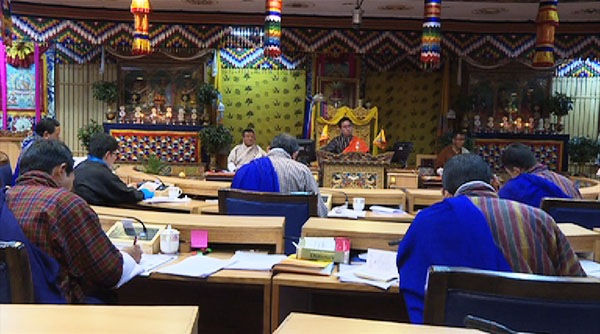 The Good Governance Committee of the National Council proposed to recommend the government to revisit the current practice of school ranking system. The committee said it is to ensure that the implementation does not deviate from its intended purpose after finding out manipulation of continuous assessment marks to positively influence performance ratings.
The Good Governance Committee of the National Council proposed to recommend the government to revisit the current practice of school ranking system. The committee said it is to ensure that the implementation does not deviate from its intended purpose after finding out manipulation of continuous assessment marks to positively influence performance ratings.
The committee recommended this along with four other recommendations while presenting the report on Review of the Programme Initiatives towards improving the Quality of Education today.
The school ranking system was introduced to serve as a support system for low performing schools to help them come to the level at par with high performing schools. However, according to the committee, concerns were raised by principals on the practice of ranking using academic performance.
“The study also confirms the practice of manipulation of the continuous assessment marks mainly to positively influence the school and individual teacher performance ratings. We have found out that a few teachers were involved in manipulating the marks of students,” said Surjaman Thapa, a member of the Good Governance Committee of the National Council.
The committee also presented that most principals and teachers of the low ranking schools are de-motivated because the criteria used for rating schools is found unfair.
Meanwhile, access to Early Childhood Care and Development (ECCD) programmes was also recommended. The committee reported that the current ECCD centres cover only 26 per cent of children eligible for ECCD programmes. Although the Bhutan Education Blueprint 2014-2024 has set the target of 50 per cent of coverage by 2024, the committee recommends enhancing the target on ECCD coverage from 50 per cent by 2024. Bhutan has also committed to Sustainable Development Goal of attaining 100 per cent coverage of ECCD by 2030 and similarly, the committee recommended to expedite the expansion of access of centres to attain 100 per cent coverage before 2030.
Other recommendations to ensure adequate financial and human recourses for primary schools, timely orientation for teachers on curriculum and other support services and professional development of teachers were also proposed.
The committee initially started with the assessment of central schools and the committee during its 49th meeting decided to broaden the focus. The committee then decided to work on Review of the Programme Initiatives towards improving the Quality of Education.
Choni Dema/Kinley Dem










